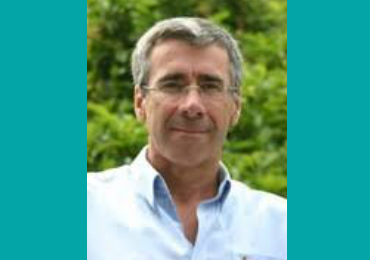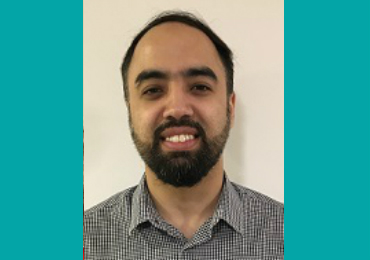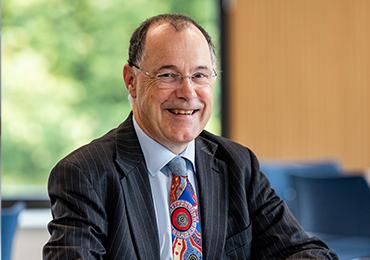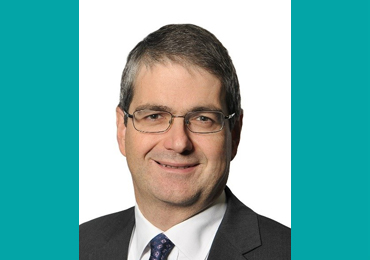
The committee is responsible for advising the Board on the integrity of the statutory financial statements and the work of the external auditors. In conjunction the committee reviews the effectiveness of internal control and risk management arrangements. In relation to financial matters the committee gives consideration to the formulation of the finance planning for the organisation, including the annual budget and medium-term financial forecast ensuring the financial health and solvency of Advance HE.
Chris Sayers (Chair of Committee and Board member)
Chris Sayers was the Chair of the Committee of University Chairs between 2017-2020, and was Chair of Northumbria University until 2020. He is now a board member of SRUC. Chris became Chair of CUC in April 2017, overseeing the introduction the new CUC remuneration code and working closely with HEFCE, DFE and the OFS in helping to shape the governance requirements of the new regulatory framework.
Since retiring from BT in 2012 where he ran a major IT services division for BT Global Services, he has increasingly spent his time working in areas where education can be used drive social mobility and increase opportunities for young, disadvantaged people. As such, apart from the leadership role that he occupies in HE, he is also on the board of a Social Enterprise, called Building Futures East, which works with young people in disadvantaged parts of Newcastle to help social change through skills training and, with his wife Tessa, he runs a charity that operates two children's homes and a school for very poor children in Southern India, with the aim of using education to break the poverty cycle.
Chris is also currently a non exec director of an IT services company, is the Chair of the Alnwick Playhouse Theatre, and a trustee of The Youth Charter.

Graham Hillier (Co-optee)
Graham is the Royal Society Entrepreneur in Residence at Northumbria University. He took this role after being a Governor of the University and Chairing the University’s Employment and Finance Committee for the seven years until July 2020. He is also a non-executive director and strategic advisor to a number of companies.
Prior to this Graham had a long and distinguished career as a strategy and innovation director in the aerospace, materials and construction industries before joining the Centre for Process Innovation where he was Strategy Director and Chief Technology and Innovation Officer as the company grew from 6 to over 500 people. We was also part of the team that created the UK’s High Value Manufacturing Catapult where he was the organisation’s first CTO. He was honoured to receive a Lifetime Achievement Award for his services to Innovation in 2019.
Graham has a Metallurgy Degree from the University of Sheffield, a PhD from the University of Cambridge and an MBA from the Open University. He is Fellow of the Institute of Materials, Minerals and Mining, a Fellow of the Institute of Directors and a Fellow of the Royal Society for Arts, Manufactures and Commerce.
Saad Qureshi
Saad Qureshi is currently developing a new digital media start up while also being CEO of a new care provider launching to market in 2023. He has previously spent nearly 15 years in higher education most latterly as an Executive General Manager and European Dean for Navitas, a global education provider. He has vast experience in strategic leadership, change management and turnaround, and leading multi-campus and multi- disciplinary teams. He is also a “dual professional”, being a Principal Fellow of the Higher Education Academy, and is passionate about pedagogical development and the student experience. He has designed educational strategies and infrastructure that have improved student outcomes and teacher experiences. His focus is on developing socially responsible graduates.
He is a Reviewer for several reputable research journals, and previously sat on the Board of Studies and the Professional Development Group of the Association of University Administrators (AUA) driving the growth and standards for the AUA’s CPD offer and the flagship PgCert programme. He was also part of the Universities UK TNE group that later released the new framework for TNE provision.

Professor Mark E. Smith (For the Finance sections only)
Professor Mark E. Smith is the President and Vice-Chancellor of the University of Southampton. As President and Vice-Chancellor he is the Chief Executive of the University and has overall responsibility for its operations. He took up this role on 1 October 2019. Professor Smith was Vice-Chancellor at Lancaster University from January 2012 until September 2019. He was previously Deputy Vice-Chancellor of the University of Warwick.
Throughout his academic career, he has published more than 380 papers about advanced magnetic resonance techniques, helping to understand a range of problems in the field of materials physics. He is currently a member of the executive group overseeing the National High Field Solid-State NMR Facility at the University of Warwick.
In addition to his role as President and Vice-Chancellor of the University of Southampton, he holds a number of external appointments including Senior Independent Member of UKRI EPSRC’s Council; and board member of the Higher Education Funding Council for Wales, chairing their Research Wales Committee. He also chairs UKRI’s Financial Sustainability of Research Group and was the former Chair of the University and Colleges Employers Association (UCEA) 2016-2022. He has also served on the Boards of Jisc, HESA and HESCU.
He was awarded a CBE for Services to Research and Higher Education in the 2019 Queen’s Birthday Honours.

Paul Woodgates
Paul is an expert in strategy, operations, change and leadership in universities.
He was previously responsible for building and running the education consulting practice of PA Consulting internationally. He has worked with more than 30 universities in the UK as well as many others overseas. His experience was in delivering major programmes to define strategy, improve academic outcomes, deliver better services, and reduce cost. He has also worked extensively with government departments, regulators and funding bodies in the higher education sector in the UK and elsewhere.
Paul graduated from Durham University with a BA (Hons) in Economics and then qualified as a chartered accountant. He worked as a consultant, programme leader and change manager in a range of organisations particularly in the public sector.
He is a Governor of De Montfort University and works as an independent advisor and writer on change in universities.
